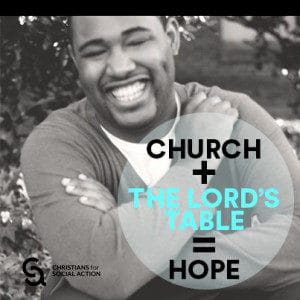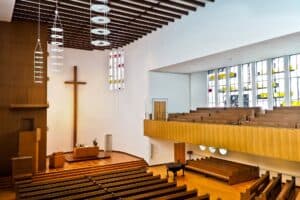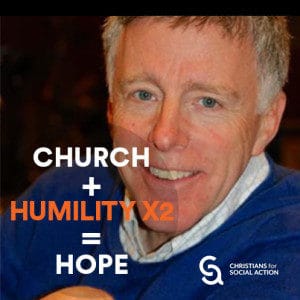 When I look at the church, what gives me hope?
When I look at the church, what gives me hope?
When I look at the church today, what gives me hope is a renewed emphasis on the centrality of the Lord’s Table in worship. Our culture is fragmented by racial, economic, gender, and sexual injustice, and the Table is proving to be a place of healing and reconciliation in our churches and communities. At the Table we are finding grace in the midst of doctrinal and identity crises, for we find in the broken body and shed blood of Christ little pieces of ourselves. Week by week, we forcibly acknowledge the frailty of human life, as exemplified in the ministry and sacrifice of our Savior and are moved to remember Christ’s mission and call to bring good news to the poor, proclaim release to the captives, and let the oppressed go free (Luke 4:18).
It stands as a radical reminder that even in our abundance and privilege, we still cannot manage to take ownership of it. It is a place for the poor, the captives, the oppressed, and even for those of us who seem to have it all together. This abundance of grace and welcome is what is transforming us from worshiping persons into a worshiping and serving people. It is the Lord’s work at the Table, and it is marvelous in our eyes.
Ken Pettigrew serves as an associate minister at St. John CME Church and is completing a Master of Divinity at the Wake Forest University School of Divinity, seeking ordination in the Christian Methodist Episcopal Church. He blogs at KAPettigrew.com.


